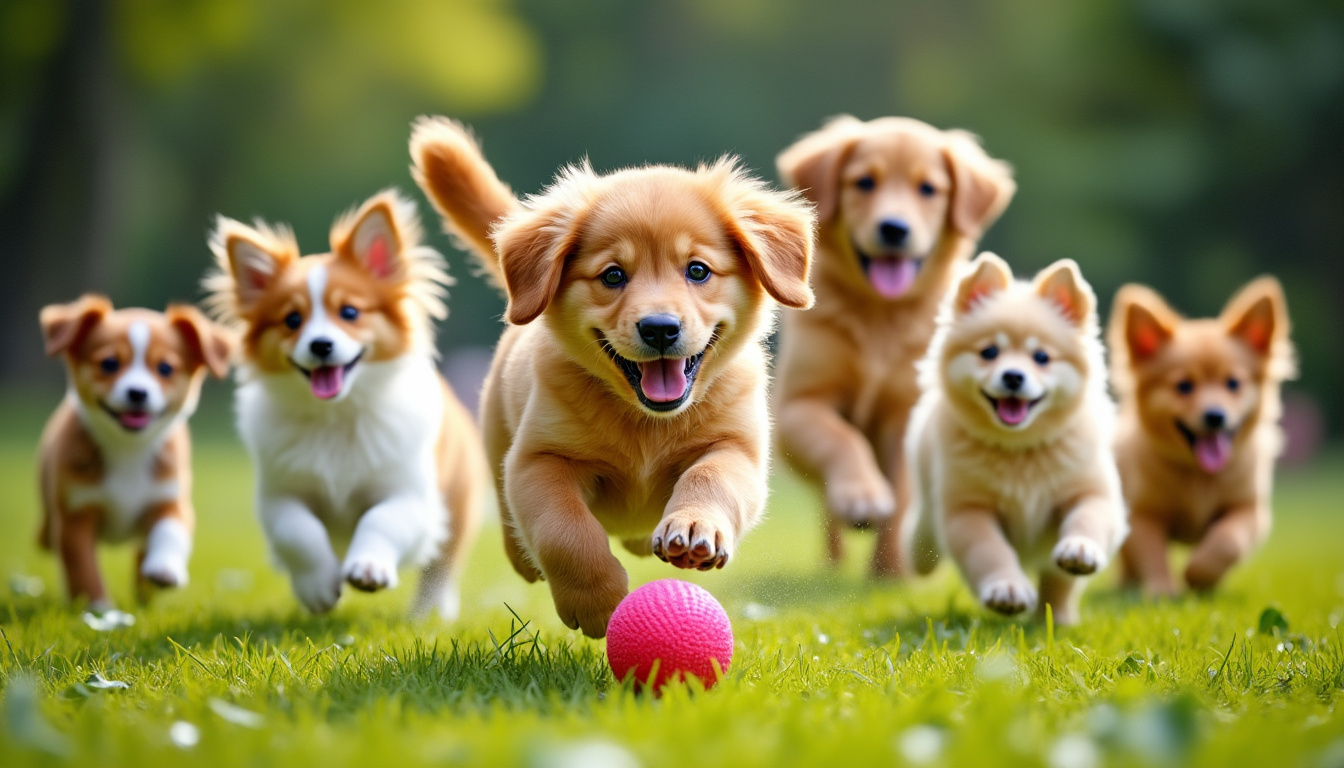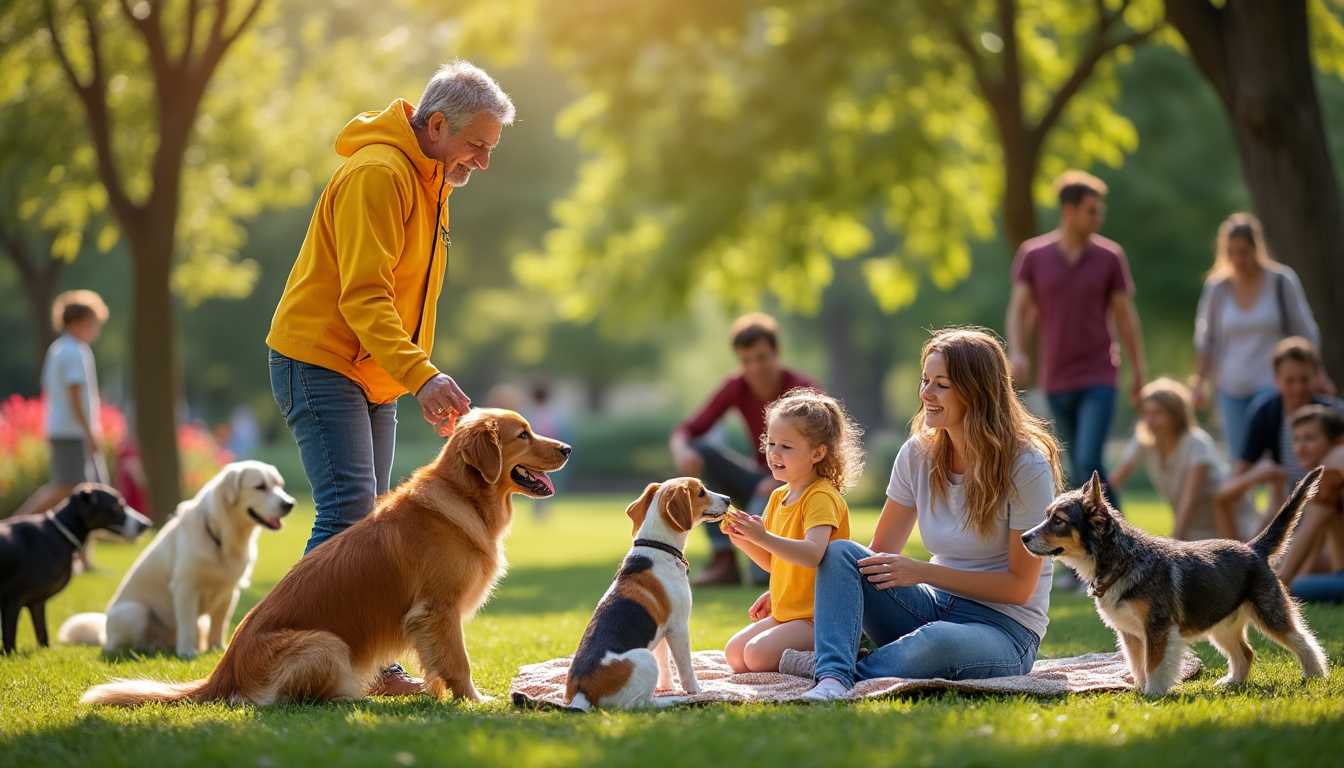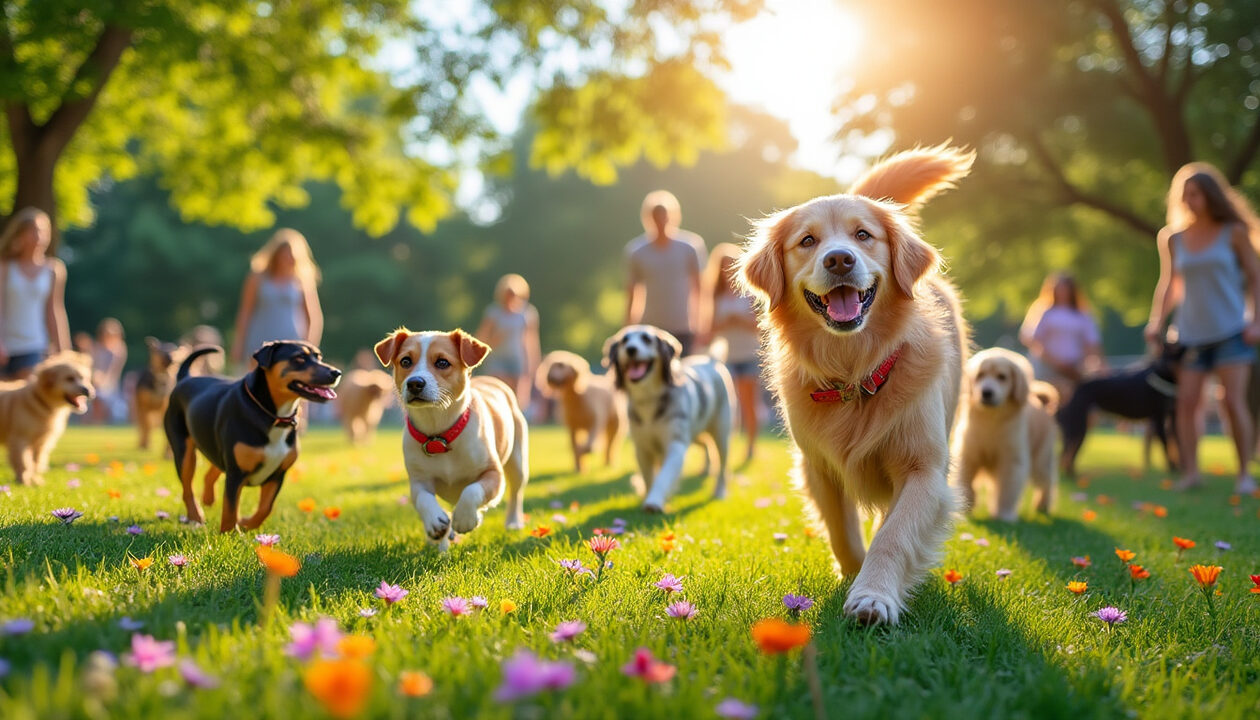Comment do social interactions influence dog education ?
Social interactions play a fundamental role in dog education, shaping the behavior of dogs and their ability to adapt to a human environment. Canine socialization is not just about taking your puppy out for walks, but it encompasses all encounters with humans, other dogs, and various situations. This process is essential to ensure a harmonious owner-dog relationship, thus preventing behavioral problems that may arise due to poor socialization. Diving into the world of dog education allows for a better understanding of the significant impact these interactions have on the development of a balanced and well-integrated dog.
The stakes of socialization are vast; it is a crucial period during which a puppy learns to behave in various environments and interact with a multitude of individuals. Whether it’s a dog growling at the sight of a child, or another that doesn’t dare approach a group of people, these behaviors can be deeply rooted in insufficient socialization. Recognizing the fundamental elements of this education is vital for all those who aspire to establish a solid relationship with their four-legged companion.
The importance of canine socialization: a journey towards trust
Each encounter, each living experience is a building block in the construction of a dog’s trust. For a puppy, the world is a jumble of smells, colors, and noises, making it essential to provide a reassuring framework. This is where education comes into play, through positive social interactions.

Building trust: the reassuring framework
Building trust in a dog is a gradual process. Puppies must be exposed to new experiences in a safe environment. Each negative experience can adversely affect their perception. For example, when a puppy encounters other dogs, it is crucial to choose friendly playmates. This will influence the future perception of the puppy regarding its own safety and the nature of its interactions. Resources like this site provide detailed information on the necessity of good socialization.
The power of play in socialization
Play is much more than just entertainment; it is a method of learning. Through playful interactions with peers or humans, puppies learn essential social skills: recognizing signals, understanding boundaries, and developing their body language. The quality and diversity of these games determine the dog’s ability to manage its future social interactions. The role of canine training here is undeniable.
Canine socialization and the development of social skills
Canine socialization is not limited to getting used to noises or places. It contributes to the development of essential social skills that will allow a dog to peacefully coexist in the human world. These skills, often taken for granted, are fundamental to avoid potentially anxiety-inducing situations for the animal.
Learning canine language
To interact harmoniously, a dog must learn to “speak dog.” Every movement, every body position has a specific meaning. A wagging tail can indicate excitement, while an alert posture may indicate concern. By meeting various breeds and temperaments, dogs develop this essential understanding. It is crucial to favor socially enriching environments where this non-verbal communication can evolve.
Living among humans: the basics for successful cohabitation
Interactions with humans are just as crucial. A socialized dog will learn to accept petting, remain calm among excitable children, and understand the limits of personal space. These skills promote harmonious cohabitation and preserve relationships between owners and dogs. For further reading on this topic, articles like this resource can be very enlightening.
Preventing anxious behaviors and phobias
Every dog feels fear, but some can develop phobias if not addressed. Preventive socialization is essential to avoid future fearful responses. By gradually exposing the puppy to a variety of situations, you teach it to manage its stress.
Gradual exposure as a barrier
It’s not about forcing the puppy to face unpleasant things, but facilitating positive exposure. Starting with simple stimuli and increasing complexity allows the dog to build confidence over time. These steps foster a relaxed environment where the dog can thrive.
The risks of insufficient socialization
A dog that has not received adequate canine education can develop various problematic behaviors. These can range from irrational fears to aggression. Canine training is essential, and investing in socialization from a young age greatly facilitates daily life. Moreover, studies show that well-socialized dogs lead more fulfilling lives. To learn more about signs of canine stress, this article offers valuable insights.
Adapting your dog to changes: the key to flexibility
Life is full of surprises, and a well-socialized dog is a prepared dog. Flexibility is a major asset in modern life, allowing dogs to adapt without too much worry. Good socialization teaches the dog not only to manage its environment but also to accept change.
Preparing dogs for the unexpected
Any change in a dog’s environment should be approached gently. Whether it’s a move or a new family member, these experiences should be introduced gradually. Dogs that have been exposed to a variety of environments and people are generally more inclined to accept these changes with serenity.
Creating an adaptable companion
A dog ready for the immediacy of life is an asset. Imagine going on vacation or attending family events without stress. A well-socialized dog can absorb these situations positively, which enhances the quality of life for both itself and its owner. Brands of training collars like PetSafe also facilitate this adaptability through practical solutions.
Social interactions play a key role not only in canine education but in the life of every dog. A good level of socialization creates not only a happy companion but also strengthens the owner-dog relationship. By investing time and effort in this process, you build a solid foundation for a harmonious future. Remember, every interaction counts! Following expert advice, visiting sites like these can enhance your understanding of the topic and improve your pet’s educational experience.











